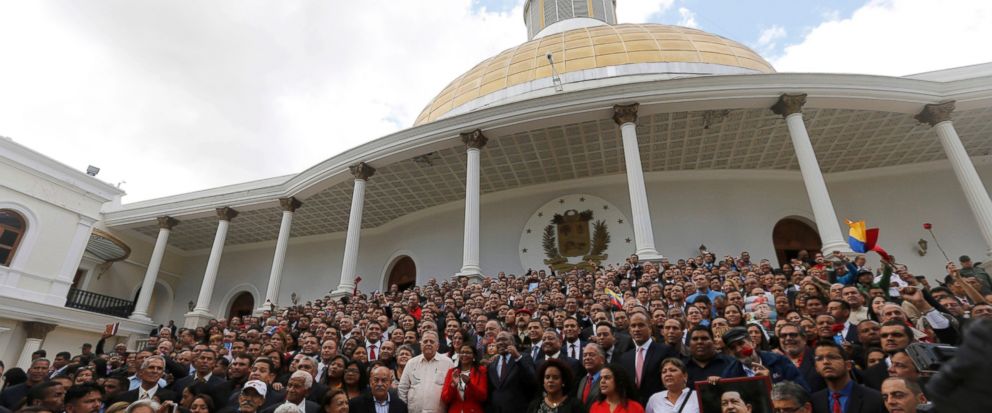Venezuela's President Maduro confirms re-election bid
President Nicolas Maduro confirmed Wednesday that he will seek a second term as president of Venezuela in an early election already widely rejected by the international community.
"I am going to be a candidate … fulfilling the order of the working class, fulfilling the order of the popular base," he announced in a broadcast on state television.
The statement came a day after Venezuela's national constituent assembly approved holding the presidential election by the end of April — months ahead of when presidential voting has traditionally taken place.
A hand-picked successor to the late President Hugo Chavez, Maduro signaled after the vote that he was ready to seek re-election, but he cemented his position in no uncertain terms, saying he will run for a full six-year term.
Earlier Wednesday, the U.S. State Department criticized the move by Venezuela's ruling party to hold an early presidential election, saying that will deny citizens of the crisis-ridden nation their democratic rights.
The "snap" election wouldn't be free or fair, State Department spokeswoman Heather Nauert said in a statement.
"We call on the Maduro regime to respect the human rights of all of its citizens, and to return to democratic constitutional order," Nauert said.
The U.S. and several European countries consider the national constituent assembly an illegitimate congress, formed last year by Maduro's ruling party to maintain its grip on power. Critics say that power belongs to the democratically elected National Assembly, which is controlled by the opposition.
The decision to push forward voting is seen as a bid to capitalize on disarray in the Venezuelan opposition and consolidate power amid a freefalling economy.
Although polls say Venezuelans overwhelmingly blame Maduro for widespread food shortages and triple-digit inflation that has pulverized wages, the opposition was left rudderless as several prominent politicians were barred from office or forced into exile last year following a deadly protest movement seeking the president's removal.
Socialist party chief Diosdado Cabello has said that elections are the best way to counter criticism by the U.S. and others that Venezuela is descending into dictatorship.
Several neighboring Latin American countries have also criticized holding an early election, saying they cut short negotiations with Venezuela's opposition, which has been calling for international observers, among measures.
The European Union on Monday imposed economic and travel sanctions on seven senior Venezuelan officials, including Cabello, who have been accused of human rights abuses or breaching the rule of law.
In response, Maduro called Venezuela's ambassador to Spain, an EU member, back to Caracas for consultation, Minister of Foreign Affairs Jorge Arreaza said on Twitter.
"We will not accept aggressions from governments subordinated to US imperialism," Arreaza said, adding that Spain exerted "interventionist and colonialist aggression."
- Star
Add Interests Customize your news feed by choosing the topics that interest you.
To save your interests across all devices Log In or Sign Up »Source – abcnews.go.com

